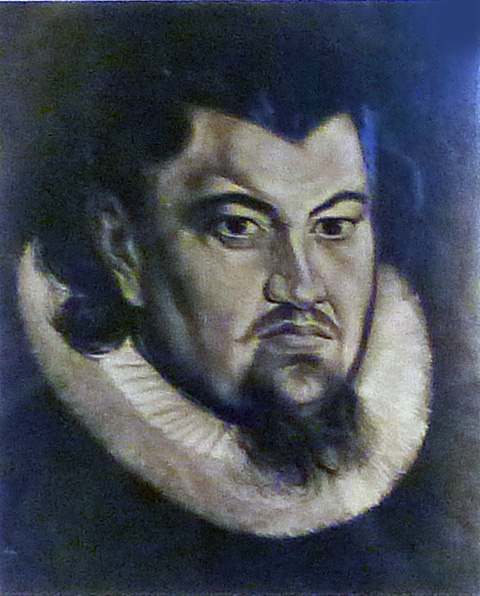|
Nikolaus Krell
Nikolaus Krell (c. 1551 – 9 October 1601), chancellor of the elector of Saxony, was born at Leipzig, and educated at the university of Leipzig, university of his native town. About 1580 he entered the service of Christian I, Elector of Saxony, Christian I, the eldest son of Augustus, Elector of Saxony, Augustus I, elector of Saxony, and when Christian succeeded his father as elector in 1586, became his most influential counselor. Krell's religious views were Calvinism, Calvinistic or Crypto-Calvinism, Crypto-Calvinistic, and both before and after his appointment as chancellor in 1589 he sought to advance his own religious views at the expense of the reigning Lutheran Orthodoxy which was the sanctioned religion of Electorate of Saxony. Calvinists were appointed to many important ecclesiastical and educational offices; a translation of the Bible with Calvinistic annotations was published; and Krell took other measures to attain his end. In foreign politics, also, he sought to chan ... [...More Info...] [...Related Items...] OR: [Wikipedia] [Google] [Baidu] |
Nikolaus Krell 001
Nicholas is a male given name and a surname. The Eastern Orthodox Church, the Roman Catholic Church, and the Anglicanism, Anglican Churches celebrate Saint Nicholas every year on December 6, which is the name day for "Nicholas". In Greece, the name and its derivatives are especially popular in maritime regions, as St. Nicholas is considered the protector saint of seafarers. Origins The name is derived from the Greek language, Greek name Νικόλαος (''Nikolaos''), understood to mean 'victory of the people', being a compound of νίκη ''nikē'' 'victory' and λαός ''laos'' 'people'.. An ancient paretymology of the latter is that originates from λᾶς ''las'' (Synaeresis, contracted form of λᾶας ''laas'') meaning 'stone' or 'rock', as in Greek mythology, Deucalion and Pyrrha recreated the people after they had vanished in a catastrophic Deluge myth, deluge, by throwing stones behind their shoulders while they kept marching on. The name became popular through Sa ... [...More Info...] [...Related Items...] OR: [Wikipedia] [Google] [Baidu] |
Christian II, Elector Of Saxony
Christian II of Saxony (23 September 1583 – 23 June 1611) was Elector of Saxony from 1591 to 1611. He was born in Dresden, the eldest son of Christian I of Saxony and Sophie of Brandenburg. He belonged to the Albertine line of the House of Wettin. Christian succeeded his father as Elector of Saxony in 1591 at the age of eight. Because of his youth, his mother Sophie of Brandenburg and his kinsman, Duke Frederick William I of Saxe-Weimar, assumed the regency of the Electorate until 1601, when Christian was declared an adult and began to govern. In the course of the event that eventually led to the Thirty Years' War, his refusal to join the Union of Auhausen deepened the division between the Protestant German states. In Dresden, on September 12, 1602, Christian married Hedwig, daughter of the King Frederick II of Denmark Frederick II (1 July 1534 – 4 April 1588) was King of Denmark and Norway and Duke of Schleswig and Holstein from 1559 until his death. A member o ... [...More Info...] [...Related Items...] OR: [Wikipedia] [Google] [Baidu] |
Philippists
The Philippists formed a party in early Lutheranism. Their opponents were called Gnesio-Lutherans. Before Luther's death ''Philippists'' was the designation usually applied in the latter half of the sixteenth century to the followers of Philipp Melanchthon. It probably originated among the opposite or Flacian party, and was applied at first to the theologians of the universities of Wittenberg and Leipzig, who were all adherents of Melanchthon's distinctive views, especially those in which he approximated to Roman Catholic doctrine on the subject of free will and the value of good works, and to the Swiss Reformers' on the Lord's Supper. Somewhat later it was used in Saxony to designate a distinct party organized by Melanchthon's son-in-law Caspar Peucer, with George Cracovius, Johann Stössel, and others, to work for a union of all the Protestant forces, as a means to which end they attempted to break down by this attitude the barriers which separated Lutherans and Calvinists. M ... [...More Info...] [...Related Items...] OR: [Wikipedia] [Google] [Baidu] |
17th-century Executions In The Holy Roman Empire
The 17th century lasted from January 1, 1601 ( MDCI), to December 31, 1700 ( MDCC). It falls into the early modern period of Europe and in that continent (whose impact on the world was increasing) was characterized by the Baroque cultural movement, the latter part of the Spanish Golden Age, the Dutch Golden Age, the French ''Grand Siècle'' dominated by Louis XIV, the Scientific Revolution, the world's first public company and megacorporation known as the Dutch East India Company, and according to some historians, the General Crisis. From the mid-17th century, European politics were increasingly dominated by the Kingdom of France of Louis XIV, where royal power was solidified domestically in the civil war of the Fronde. The semi-feudal territorial French nobility was weakened and subjugated to the power of an absolute monarchy through the reinvention of the Palace of Versailles from a hunting lodge to a gilded prison, in which a greatly expanded royal court could be more easily ke ... [...More Info...] [...Related Items...] OR: [Wikipedia] [Google] [Baidu] |


